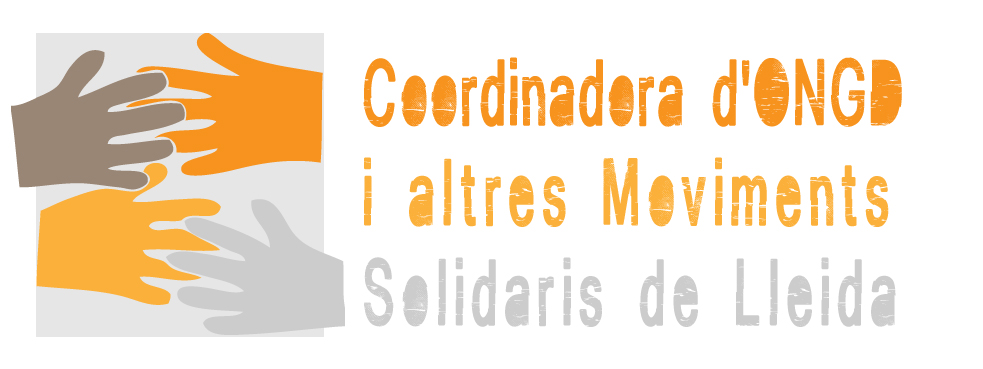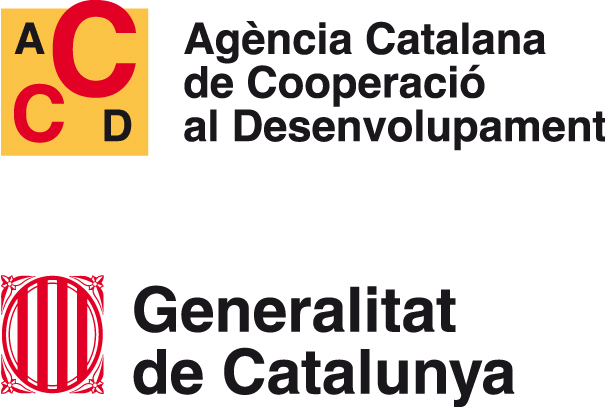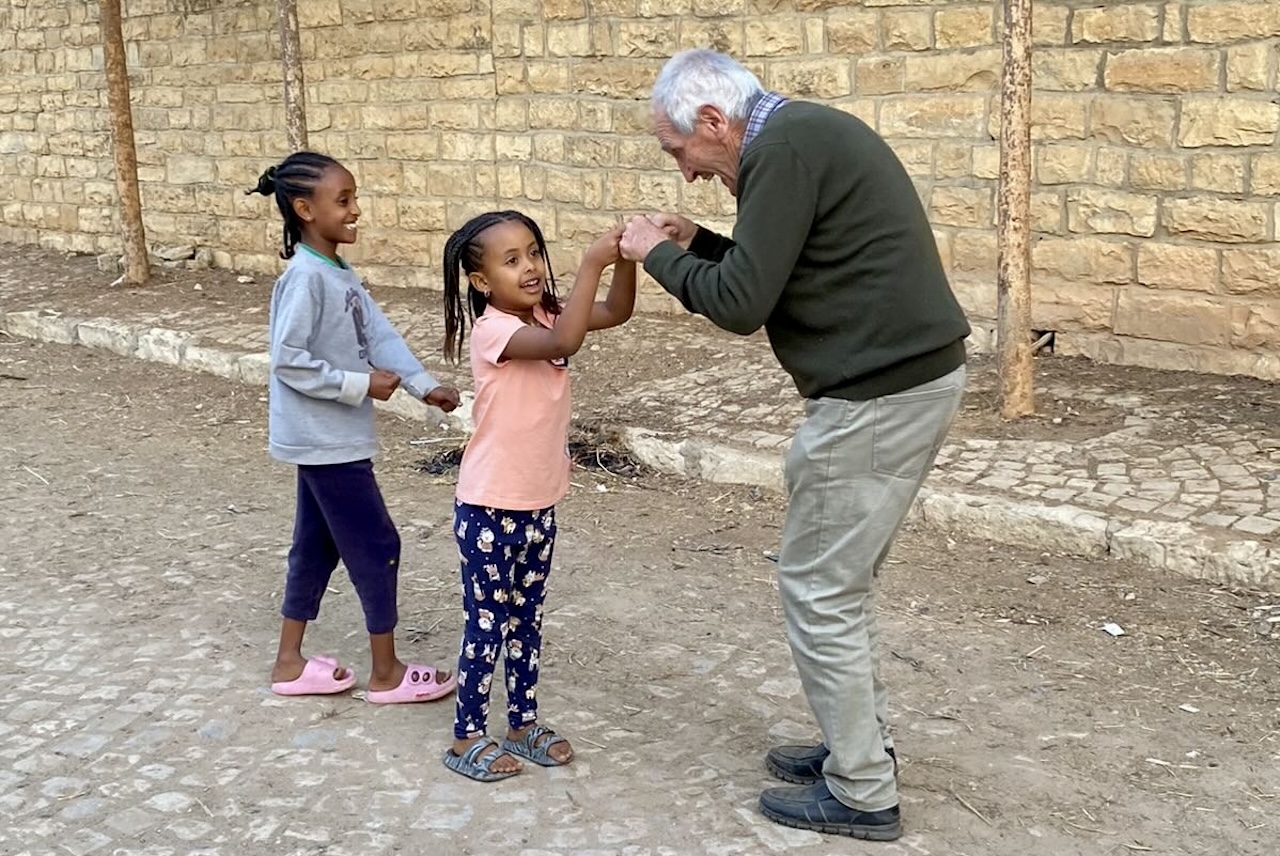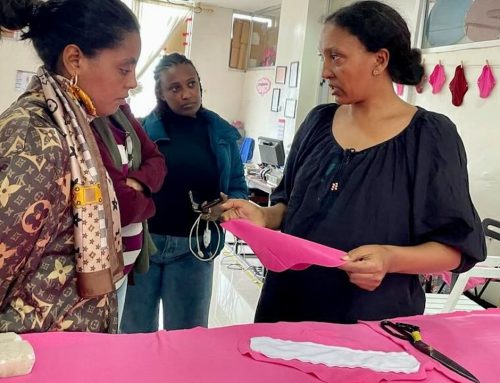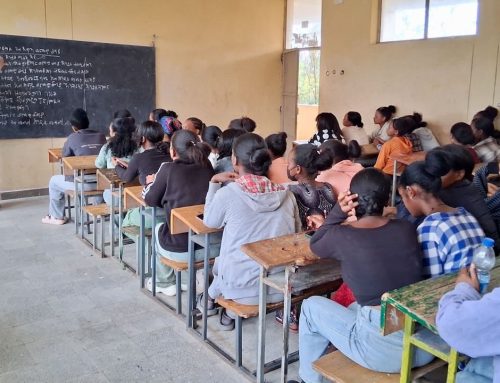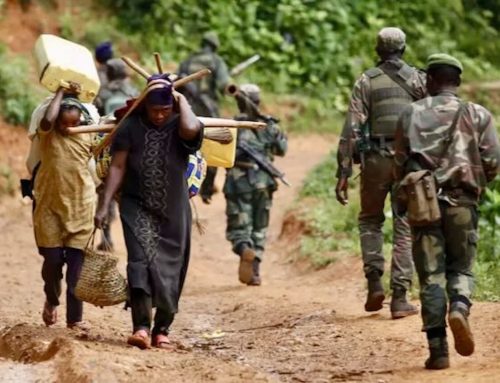Africa is a continent welcoming refugees and migrants
Ángel Olaran speaks about how Africa is a continent welcoming refugees and migrants in this publication. Here we gather his full writing that he sends us from Wukro, Tigray, in northern Ethiopia.
Amid migration crises, Africa emerges as a refuge for millions fleeing conflicts. Ethiopia, the epicenter of this odyssey, hosts nearly a million refugees, facing challenges of resources and budget. UNHCR (United Nations High Commissioner for Refugees) and the Jesuit Refugee Service are pillars in this humanitarian work, despite budget cuts. Through educational programs and emotional support, hope is given to the most vulnerable. However, the struggle continues to ensure dignified conditions and economic opportunities. A call for global solidarity to address this humanitarian crisis.
Writing by Ángel Olaran
Africa is a continent welcoming refugees and migrants
The marches of thousands of people fleeing their home countries to seek safety in the nearest bordering country are still fresh: Congo, Rwanda, Burundi, Ethiopia, Sudan…
Only in Ethiopia, there is news of around a million of them being in some way recognized, and about another 300,000 of whom it is known that they are there, but without further tracking.
According to the Oct-Dec 2023 report from UNHCR, there are 77,359 people from 8 nationalities in Addis Ababa, especially Eritreans, Somalis, there are also Yemenis, Syrians, Congolese, Sudanese… (85 % are women and children).
UNHCR, dependent on the UN, and RRE, national from Ethiopia, are the agencies dedicated to this service.
It is known that UNHCR’s budget, from last year to the present, has been reduced by 50 %. It’s budget for this year 2024 is $1,960,000.
These institutions, according to the mentioned report, obtained during the 3 months, 8,489 identity cards and another 5,505 started the process. On the other hand, 1,535 children obtained the birth certificate and 490 were enrolled in school, as well as 877 youths (406 girls) in different educational centers. But problems with food, rent for the house, education, health, official documentation… remain crucial.
The Jesuit Refugee Service (JRS), considered by UNHCR as our implementing partner, until the beginning of the war in Tigray, November 2020, supported the program for 100,000 Eritrean refugees. From that date, Eritrean soldiers entered, taking or destroying all the infrastructure, furniture, and cars included.
Apart from the 20,000 Eritreans who were forced to return to their country, the rest are scattered throughout Ethiopia, especially in Addis Ababa.
JRS in Addis Ababa, for the past 20 years, has been providing services to refugees in different reception centers:
Their service comes through several specialized centers: I had the opportunity to visit some of them, offering care to youth, hosting children separated from their parents… Among the services offered: language, art, music, computer, sports practices, vocational training, emergency… support for mental and psychosocial health.
The visited youth and children did not offer a smiling face upon the usual visits; a familiar, friendly atmosphere was palpable.
In a second center in the city, Sidis Kilo, also run by JRS, a group of 5,357 children and youth have received the same services.
In all these centers, only children receive food support. 960 youth have received vocational training that will help them get a job.
Both among the neighborhood of the centers, and in the media, nor in the political parties, there is no animosity towards them, nor are they accused of coming to take their jobs.
They provide the same support to a population of 200,000 Somali refugees, in border areas between Somalia and Ethiopia.
What happens in Ethiopia, with not many differences, must happen in most African countries. Possibly, Africa is the continent richest in ‘raw materials’ and necessities products, such as green energy. To take advantage of it, we kill, extort, corrupt, steal.
To get rid of its ‘human material’, if necessary, we kill it: cf: rafts, prisons, hunger. We pay whatever billions it takes so they don’t dirty our coasts.
In both cases, very little ingenuity.
It is a tailor-made opportunity for the EU: to avoid the entry of rafts, as well as the need to pay those millions to neighboring countries. On the other hand, to avoid the policemen who have to present those very brutal faces in their confrontations with the youth, for whom their main weapon is to help their relatives; to be able to return to their countries. Possibly, some policemen have children, of the ages of these foreign youths, working outside of Spain.
As the Fox in The Little Prince would say, the same in Ethiopia: “nothing is perfect”, but the difference is palpable, both administratively and in the population. And I bet that is general throughout Africa.
If there were the security of economic support, as neighboring countries with Europe have, cf: the EU increases by 3,000 % the fight against migration, and refugees; UNHCR cuts it by 50 %, in addition to humanizing the service, many, many young people would stay in their countries of origin.
Addressed to people of goodwill.
Ángel
With the collaboration of
